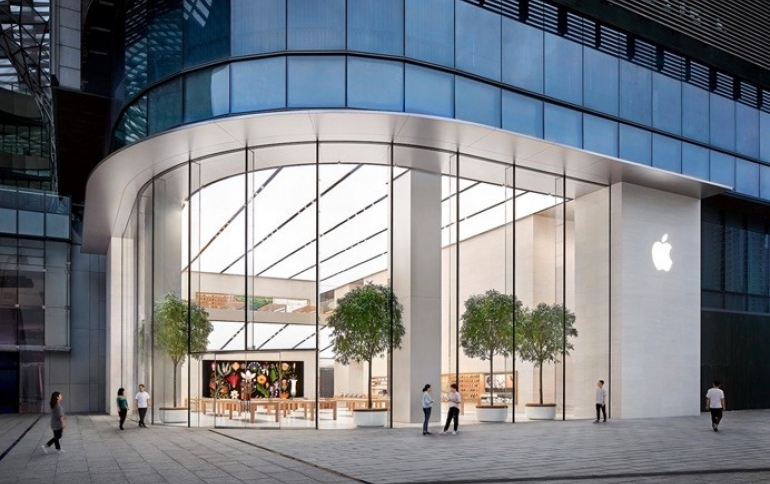
Apple and Samsung Eye India Expansion as US-China Trade War Escalates
India's growing smartphone market is attracting global smartphone players Samsung electronics and Apple players seeking shelter from the US-China trade war.
The world's biggest smartphone makers are stepping up their marketing and manufacturing efforts in India, with Apple to be ready to launch its first retail shop in the country. Earlier this month, Apple CEO Tim Cook told investors that the company was "working with the government to seek approval" for a store opening.
Currently, Apple sells its iPhones through third-party retailers such as Nyasa and Maple Stores and has online partnerships with Amazon India and PaytmMall.
Apple is also planning to expand local manufacturing. While older iPhone models have been produced at a plant in Bangalore for some years, Apple aims to start making more recent models, such as the iPhone 7, too. Taiwan-based Wistron assembles older iPhones at two sites, while the Indian units of Flextronics of Singapore and Salcomp of Finland provide chargers. China's Yuto Packaging Technology is also now packaging older models, the iPhone SE and 6s, in India.
Samsung Electronics and Chinese Xiaomi are also strengthening production capabilities and sales channels in the country.
According to IDC, Xiaomi held a 28.9% share of the Indian smartphone market in 2018, followed by 22.4% for Samsung and 10% for Vivo, another Chinese company. Samsung, which dominated the Indian market for several years, lost its lead to Xiaomi about a year ago.
India is aplying a 20% import duty on mobile devices, making iPhones in India among the most expensive in the world and is one reason Apple has just 1% of the market there.
Apple's suppliers including Foxconn Technology are also planning to move out of China amid the ongoing trade war. According to media reports, Foxconn has already begun trial production of the latest models of iPhones at its plant near Chennai.
Samsung has also expanded local procurement in India to include software as it tries to regain the lead from Xiaomi. The South Korean phone maker also opened a mobile factory on the outskirts of New Delhi last July and aims to nearly double the number of smartphones it makes in India to 120 million a year from 68 million by 2020.
Xiaomi uses a unit of Taiwan-based Foxconn to assemble its phones at a total of six facilities in India, and is setting up a seventh facility.
Vivo has also announced plans to pump in over $573.95 million in India, including for a new production unit.
Trump tariffs and higher iPhone production costs
Apple Icould see the production costs for its flagship iPhone rise 2-3% given the impact that trade tensions between the U.S. and China are having on input materials like lithium batteries, according to Wedbush analyst Daniel Ives.
The company relies on Chinese labor for the production of nearly all of its devices, and it derived nearly 20% of its 2018 sales from the Chinese market.
Last week, Morgan Stanley estimated that Apple's fiscal 2020 earnings could drop by about 23% in a worst-case trade scenario.





















